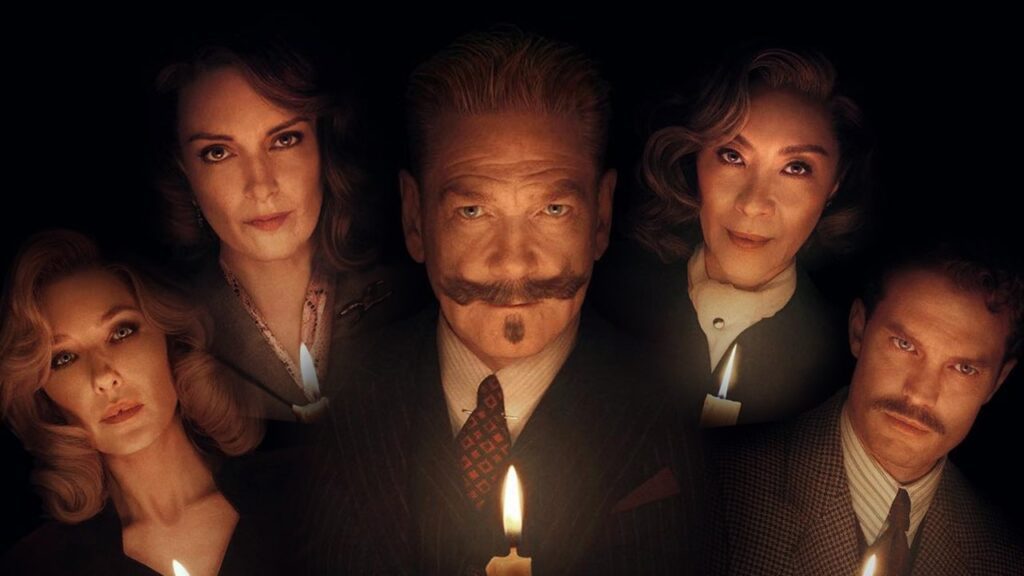I’m not too big a fan of when movies make a big deal about their plot twists. The trend probably started with 1995’s The Usual Suspects where a movie stops itself in its tracks to show the audience how everything they just watched was not as it seemed. Then through a series of flashbacks you discover the truth which is generally not as clever as the film presents it to be. So I was doubly surprised that the twist in the new Agatha Christie adaptation A Haunting in Venice not only got me, but also left me pleased to get got.
I’ve been digging this whole whodunnit renaissance of murder mystery movies starring a large cast of characters where anyone could be the culprit. You’ve had a pair of Knives Out flicks. Now comes the third movie where Kenneth Branagh plays Hercule Poirot. Branagh hams it up with Poirot’s Belgian accent. He plays him like a smarter version of Inspector Clouseau. Poirot wears a ridiculous walrus mustache and loves chomping on pastries, but he always figures out the what, who, and why behind a murder.
These movies follow the Agatha Christie formula. A bunch of people are in an exotic locale when a dead body ruins their good time. Everyone is a suspect. Right when you think you know who was the killer, that person ends up dead. Then Poirot (or Miss Marple or some other detective from the Agatha Christie literary universe) explains who killed who and how.
A Haunting in Venice is different.
It is filmed as though it was a supernatural horror movie complete with all that genre’s tropes from jump scares to ghosts of dead bloody children whispering.
But in the finale A Haunting in Venice does something, if not revolutionary, then a trick I’d never personally seen a movie pull off before. There’s a twist that not only shifts the plot, it also shifts what genre this movie belongs to.
Cassandro
Cassandro tells the true story of Saúl Armendáriz, a struggling Texan wrestler who has an epiphany. If he’s going to make it big in the ridiculous world of Mexican wrestling, then he needs to go all in on ridiculousness. He creates the character of Cassandro, a character so flamboyant he’s known as the “Liberace of Lucha Libre”.
For the first hour I thought Cassandro belonged firmly to one of my favorite genres, the gritty underdog story. From Rocky to Hustle & Flow to Million Dollar Baby, I always enjoy seeing an unlikely hero from the wrong side of the tracks triumph in their chosen craft. And in its first sixty minutes Cassandro seems to be a worthy successor for the last great wrestling movie, The Wrestler. It does a great job of depicting the world Cassandro comes from and who he is as a character. The wrestling scenes are impressive and filled with violent danger.
But halfway through the movie collapses with the weight of an off the rope bodyslam. I don’t know if it’s because of the fact that pro wrestling is more of an athletic performance where outcomes are decided in advance than an actual competition, but all of a sudden it’s not clear what the stakes are.
It’s not for Cassandro to win a championship. Maybe it’s that an outwardly gay character can be cheered for? But it doesn’t clearly depict why the crowds go from hurling homophobic slurs at him to cheering him on. So you’re left feeling you watched an ineffectual public service message, rather than a film that if it hadn’t lost direction should have brought tears to your eyes.

